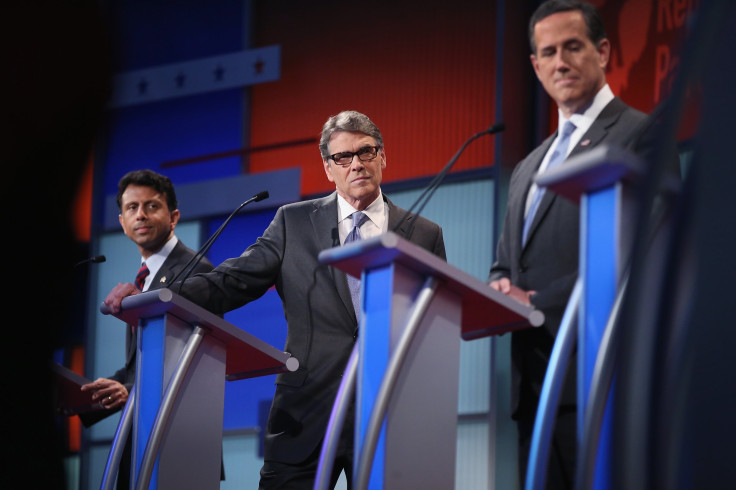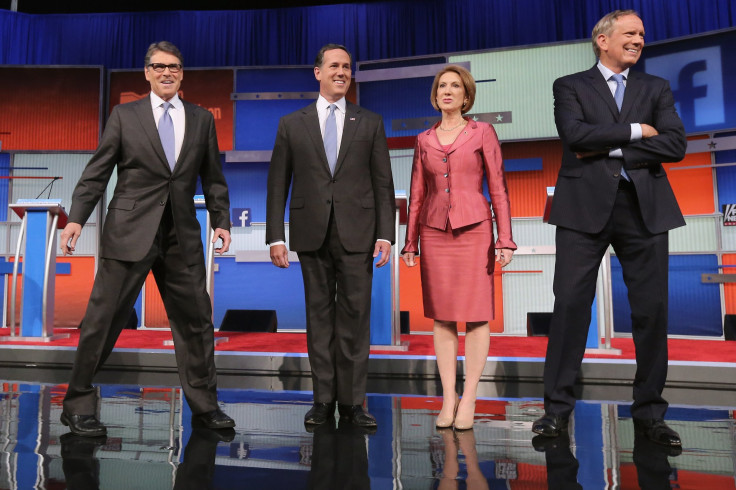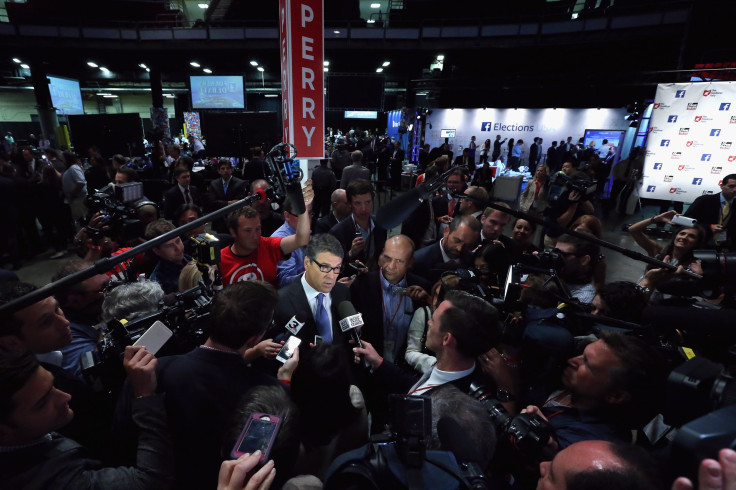Election 2016: Why Republican Debate Losers Will Stay In The Race; GOP Sees White House As Winnable

WASHINGTON -- So you just lost the Republican presidential primary debate. Or at least didn't win. What now?
Back in the day, a lackluster performance might have hastened your exit from the race. Lower poll numbers or smaller crowds would translate into diminishing funds. No money? No campaign.
But this cycle, the pressure to win or get out has lessened. In fact, there are compelling reasons for the candidates to keep slogging. Even after two debates Thursday that produced hardly any clear "winners," don't expect the field to start winnowing.

One factor is simply the number of candidates and the resulting statistical cluster. With 17 people running, the difference between 6th place and 17th can be a poll's margin of error. The result: A candidate who feels he or she could be within striking distance is going to be motivated to stick around longer.
The financial imperatives are different this year as well. It still takes money to keep a presidential campaign going, but the post-Citizens United proliferation of super PACs and big-money backers means long shots have, well, longer to give themselves a shot.
“Many can stay in since they have enough money to compete through the early contests,” University of Virginia political science professor Larry Sabato said. “Campaigns only end when they run out of money. And there seems to be a fair amount of cash, even for long shots this year.”
Former Texas Gov. Rick Perry, for example, didn't make the cut for Thursday's prime-time debate and his performance in the consolation round was unmemorable. (That was a kind of victory, compared with his notorious "oops" in a 2012 debate.) Perry's fundraising is sturdy, though: While his campaign has raised an unremarkable $1.3 million, the super PACs backing him have pulled in $16.8 million. So mediocre debating skills notwithstanding, Perry has no impetus to drop out.

There's a cautionary example of giving up too early: Tim Pawlenty. In August 2011, the former Minnesota governor was behind in the polls, lost the now defunct Ames Straw poll to Michele Bachmann and decided it was time to quit. He said he didn't have enough money to continue.
But the GOP primary race would fluctuate dramatically over the next months. A rotation of candidates took turns briefly rising to the top of the polls and then collapsing. Mitt Romney -- well-funded but essentially nobody's first choice -- stuck around long enough to secure the nomination. If he'd stayed in the race, Pawlenty, a competent, credible conservative, might have had a real chance to succeed.
The most powerful lure for GOP candidates this year, though, is that the White House is wide open. There's no incumbent to pry out of the Oval Office. Hillary Clinton is a strong candidate but hardly seems unbeatable. And history says after one party has held the presidency for two terms, voters are overwhelmingly likely to give the other party a turn. (Democrats have won a third consecutive presidential election only twice since 1828 -- and one of those was when FDR succeeded himself.)
The candidates at the absolute bottom of the pile -- former Virginia Gov. Jim Gilmore and former New York Gov. George Pataki -- may admit defeat sooner rather than later. Pataki’s fundraising (both campaign and super PAC) has barely cracked $1 million. Gilmore hasn’t reported any fundraising totals yet.
South Carolina Sen. Lindsey Graham is also languishing around 1 percent in polls. But his fundraising is relatively healthy, likely helped by the fact that he’s an influential senator who serves on the Appropriations, Armed Services and Judiciary committees. He’s brought in $2.2 million, and the super PAC backing him has raised $2.9 million more. So he still has fuel in the tank if he wants to continue -- which, given his hangdog demeanor in the debate, may not be the case.
For everyone else in the field, though, there's an incentive to persevere, and it's sitting right there on Pennsylvania Avenue, looking tantalizingly within reach.
© Copyright IBTimes 2024. All rights reserved.






















